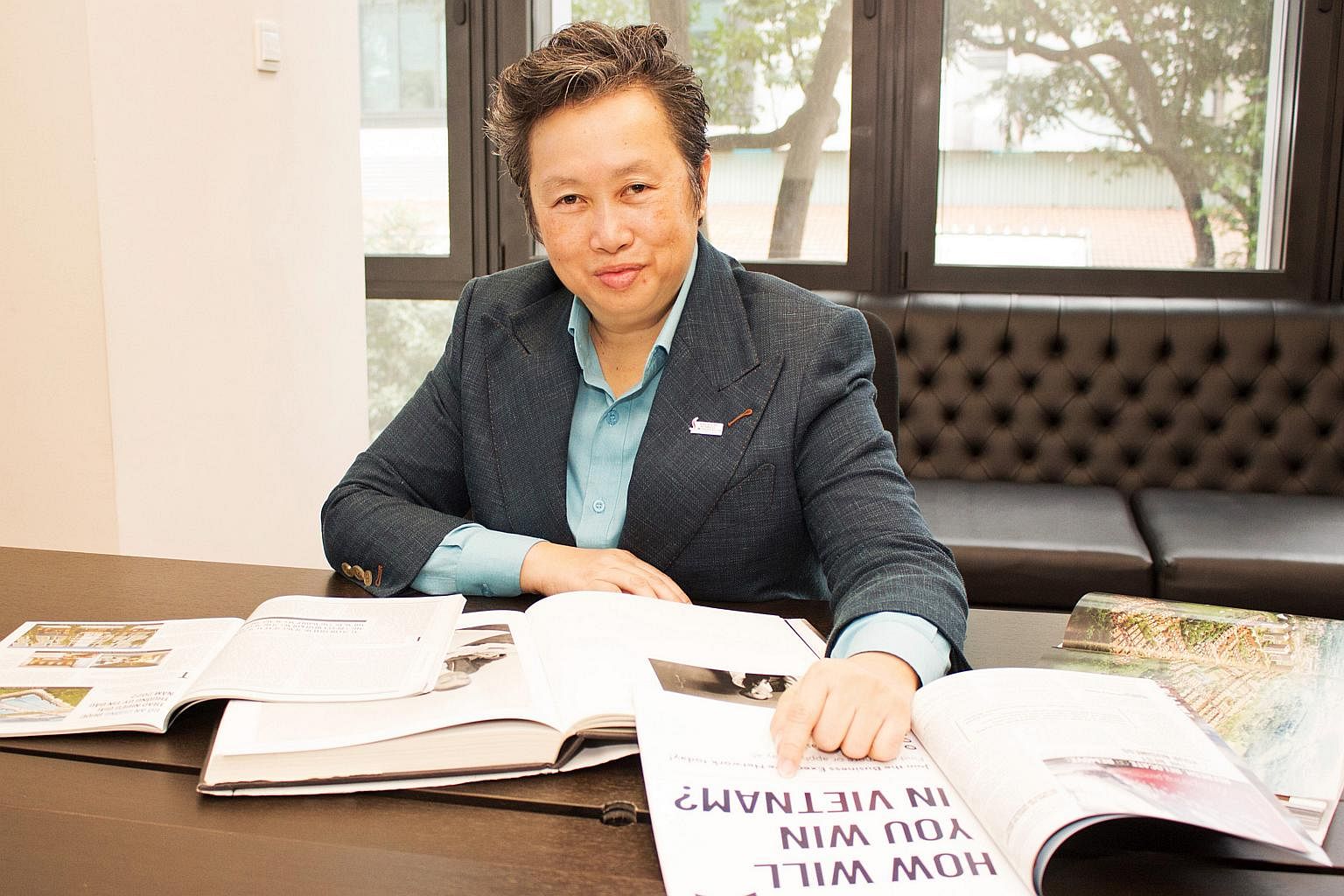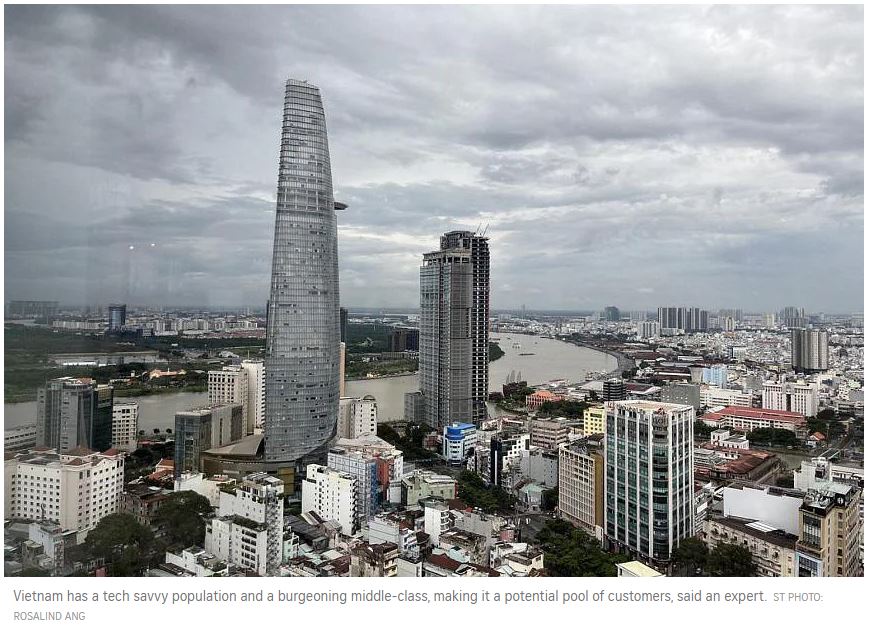Low labour costs, strong investor interest drawing S’pore start-ups into Vietnam
SINGAPORE – The number of start-ups from Singapore venturing overseas through Enterprise Singapore’s Global Innovation Alliance (GIA) acceleration programmes has ballooned to more than 400 in less than five years.
One of the more popular destinations is Vietnam, with its large workforce, lower labour costs and sizeable market, say experts.
“The labour force in Vietnam is increasingly well educated and still relatively cheap compared to Singapore,” said Mr James Tan, managing partner of venture capital company Quest Ventures.
Vietnam has a tech-savvy population and a burgeoning middle class, making it a potential pool of customers as well, Mr Tan added.
The cost of operations is still low, in comparison with other markets in the region, said Ms Phi Van Nguyen, an adviser to Project 844, an office under Vietnam’s Ministry of Science and Technology, which aims to grow the country’s start-up ecosystem.
Ms Phi is also a board member of the Association of South-east Asian Nations (Asean) Business Angel Alliance and chairman of Vietnam Angel Network.
“It’s easier to find funding here (in Vietnam) because a lot of venture capitalists and investors are focusing on Vietnam at the moment. The cost of living is also low, it’s easy to move around and connect with people, so it’s easier for international founders to start start-ups here,” she noted.
The GIA was set up in 2017 by Enterprise Singapore. Its programmes help participants understand the innovation ecosystem in overseas markets and connect them to investors, start-ups, corporates or institutions looking for co-innovation partners.
Singapore has always been one of the strongest partners of Vietnam both before and during the pandemic, said Ms Phi.
Vietnamese sectors that venture capital firms are looking at include health technology, food processing and blockchain.
Singapore start-ups get a big headstart when venturing overseas, but it might not always be a good thing, Ms Phi added, noting: “(They) are spoiled. They get market entry support, they get their costs and expenses covered.
“That can be great, but sometimes it’s not – when you are so protected and supported, sometimes you might lose the zest to go out there and make things happen yourself as an entrepreneur.”
Start-ups in Singapore will also have to learn about the Vietnamese market and not try to copy and paste their local business approach for foreign markets, she added.
“One big thing to take note of is how Vietnam is 30 per cent urban and about 70 per cent rural.”
One challenge start-ups might face would be offering online services or products to rural markets, as people there may not have regular access to the Internet.
Singaporean small and medium-sized enterprises should also spend more time on the ground in Vietnam to understand the market and build relationships with potential business partners, said Ms Amy Wee, country head for Vietnam at the Singapore Business Federation (SBF).
“With short trips of five to seven days to Vietnam, SMEs may not have enough time to cultivate relationships with people in the country,” she added.

International company founders who are serious about the Vietnamese market should consider staying there or at least hiring a good team that will be based in the country, said Mr Taku Tanaka, chief executive officer of Kamereo, a business-to-business food sourcing platform that launched in 2018.
“Start-ups in Singapore should not stay in Singapore; it is important that they take advantage of emerging fast-growing markets overseas. Their experience overseas can allow them to bring back some fresh perspectives to their companies as well,” he noted.
Since the expansion of the GIA network to Vietnam in 2019 via EnterpriseSG’s partnership with Quest Ventures, more than 45 Singapore-based start-ups across sectors such as edtech (educational technology) healthtech and information technology have participated in the Vietnam GIA acceleration programme, said Mr Jonathan Lim, director for Global Innovation Network at EnterpriseSG.
Participants of the programme get to attend workshops, receive one-to-one mentorship with industry experts, networking opportunities and an overseas immersion trip to connect with potential overseas partners.
“Three start-ups have since successfully set up a presence in Vietnam, while more than 10 are in discussions with potential Vietnamese partners on possible project collaborations,” added Mr Lim.
Source: https://www.straitstimes.com/business/low-labour-costs-strong-investor-interest-drawing-spore-start-ups-into-vietnam


 English
English




